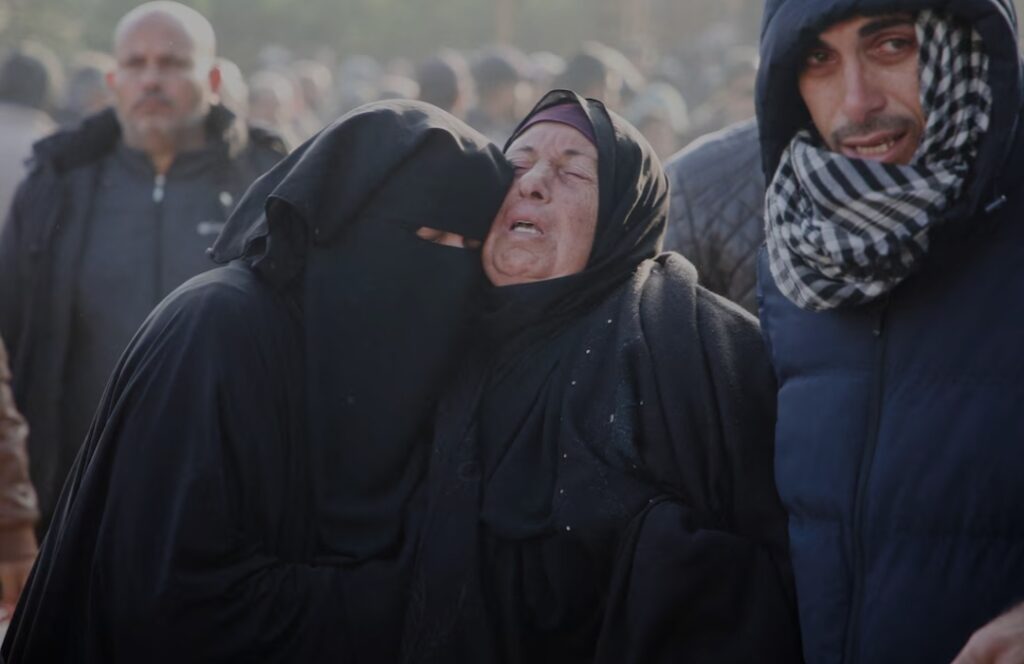
Israel on Saturday approved a ceasefire deal with Palestinian militant group Hamas that involves release of hostages in the Gaza Strip, and Israeli forces bombed the tiny enclave ahead of the agreement’s scheduled start on Sunday.
The agreement is set to halt a 15-month-old war between Israel and Gaza’s rulers Hamas that has decimated the Strip, killed nearly 47,000 Palestinians and 1,200 Israelis, and destabilised the Middle East.
Early on Saturday, after meeting for more than six hours, the Israeli cabinet ratified the U.S.-brokered ceasefire deal which is mean to stop fighting and see the release over several weeks of dozens of hostages held by Hamas in return for scores of Palestinians in Israeli prisons.
“The Government has approved the framework for the return of the hostages. The framework for the hostages’ release will come into effect on Sunday,” Netanyahu’s office said in a brief statement.
In Gaza, Israeli warplanes have kept up heavy attacks since the deal was agreed, and continued to pound the territory on Saturday.
Israeli tanks shelled the Zeitoun neighbourhood of Gaza City and airstrikes hit central and southern Gaza, residents said. Medics in Gaza said five people were killed in an airstrike that hit a tent in the Mawasi area, west of the city of Khan Younis.
At least 123 Palestinians have now been killed by Israeli bombardment since the ceasefire deal was announced on Wednesday, the Palestinian Civil Emergency Service said.
The Israeli military said it had carried out strikes on 50 “terror targets” across the Gaza Strip on Friday and did not immediately respond to questions about its actions on Saturday.
Sirens sounded in Jerusalem and Tel Aviv on Saturday. The military said it had shot down a missile fired from Yemen and made no mention of any casualties. The Houthi group, which controls large parts of Yemen, indicated they would launch attacks on Israel should it “violate” the ceasefire.
The Gaza war – which began when Hamas staged the most devastating attack in Israel’s history on Oct. 7, 2023, killing hundreds in southern Israel – has set off a series of other, smaller conflicts in the Middle East.
Israel began bombing Gaza immediately and soon clashed with Lebanese Hezbollah, an Iran-backed ally of Hamas, eventually invading southern Lebanon and killing most of Hezbollah’s top leadership.
The Yemeni Houthis, also backed by Iran, have since the start of the Gaza war carried out hundreds of attacks on what they say are Israeli-linked cargo ships travelling via the Red Sea, and fired a number of missiles at Israeli territory.
Israel has responded by bombing Yemen. Israel has also killed a number of senior officers in the Islamic Revolution Guards Corps, Iran’s elite military force, many of them in strikes on Syrian territory including the Iranian embassy compound in Damascus last year.
FIRST HOSTAGES TO BE FREED SUNDAY
It is not clear whether the end of fighting in Gaza would help calm wider regional tensions. If successful, some observers say, it could ease hostilities elsewhere in the Middle East.
The ceasefire will come into effect at 0630 GMT on Sunday, the Qatari foreign ministry spokesman posted on X. The White House expects three female hostages to be released to Israel in the afternoon through the Red Cross.
Under the deal, the three-stage ceasefire starts with an initial six-week phase when hostages held by Hamas will be exchanged for prisoners and detainees jailed in Israel.
Thirty-three of the 98 remaining Israeli hostages, including women, children, men over 50 and ill and wounded captives, are to be freed in this phase. In return, Israel will release almost 2,000 Palestinians from its jails.
They include 737 male, female and teen-aged prisoners, some of whom are members of militant groups convicted of attacks that killed dozens of Israelis, as well as hundreds of Palestinians from Gaza in detention since the start of the war.
Israel’s Justice Ministry published their details early on Saturday, along with the ceasefire agreement, which said 30 Palestinian prisoners would be released for each female hostage on Sunday.
After Sunday’s hostage release, lead U.S. negotiator Brett McGurk said, the accord calls for four more female hostages to be freed after seven days, followed by the release of three further hostages every seven days thereafter.
With the accord opposed by some Israeli cabinet hard-liners, media reports said 24 ministers in Netanyahu’s coalition government voted in favour of the deal while eight opposed it.
The opponents said the ceasefire agreement represented a capitulation to Hamas. National Security Minister Itamar Ben-Gvir threatened to resign if it was approved and urged other ministers to vote against it. However, he said he would not bring down the government.
Finance Minister Bezalel Smotrich, also threatened to quit the government if it does not go back to war to defeat Hamas after the first six-week phase of the ceasefire.
(Reuters)
Follow the KOIKIMEDIA NEWS 🗞️ CHANNEL on WhatsApp
